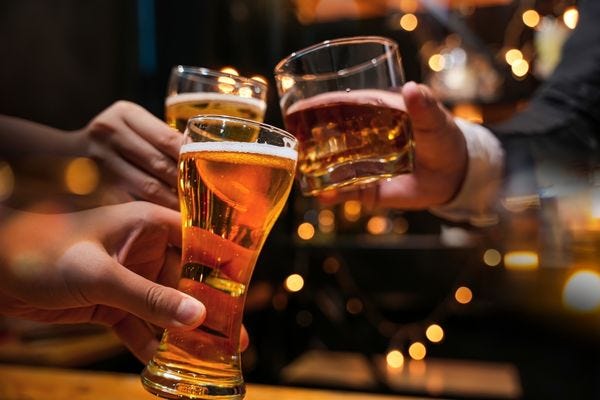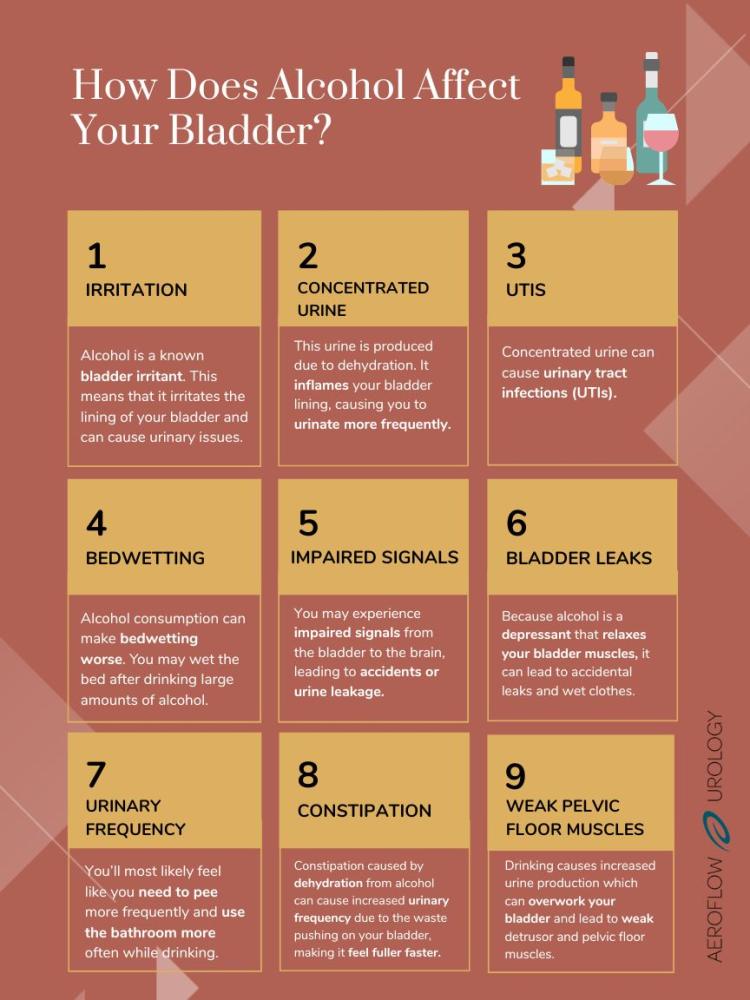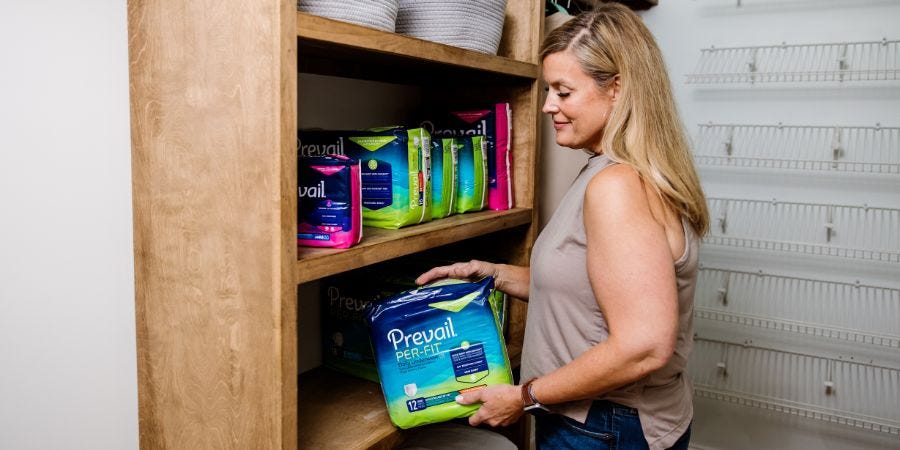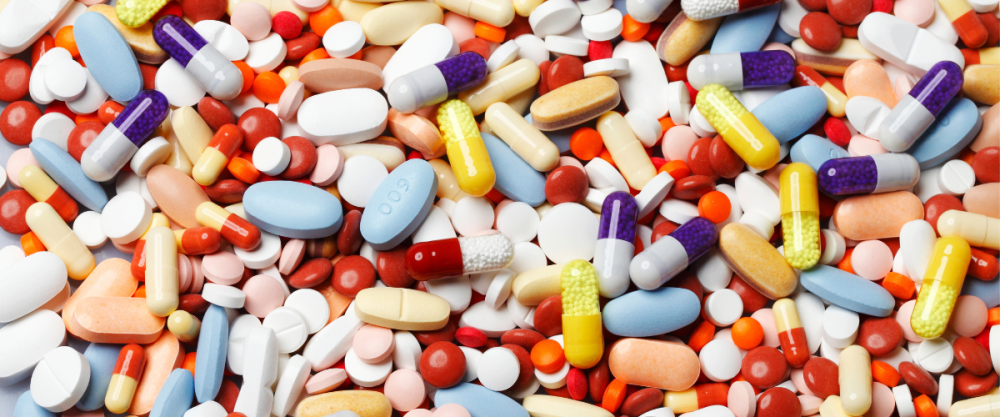Key Takeaways:
- Alcohol increases urine production, causing dehydration, bladder irritation, and urinary frequency.
- Dry January can improve bladder function, reduce UTIs, and alleviate symptoms like urgency and bedwetting.
- Alcohol affects the kidneys, liver, brain, and bladder, posing health risks for chronic or binge drinkers.
- Staying hydrated, tracking health improvements, and exercising can support bladder health during Dry January.
- Free bladder control products may be available through insurance for those with incontinence.
The month-long event recognized as "Dry January" is a time when people who choose to participate abstain from drinking alcohol. While everyone’s reasoning for eliminating alcohol for a month is different, it can have positive effects on your bladder, from decreasing urinary issues to improving kidney health and much more.
Find out what alcohol does to your bladder and if you should take a break to improve its health.
*Aeroflow Urology recognizes drinking alcohol is a personal choice. This article is meant solely to inform and educate on the effects of alcohol on the bladder.
Check your coverage for 100% free incontinence products now!
Check your coverage for 100% free incontinence products now!
How Does Alcohol Affect Your Body?
Alcohol affects everyone differently, but it affects teenagers and seniors more severely than adults.
Teenagers: Most of the time, teenagers are smaller than adults, so alcohol will affect them more quickly. Alcohol can have a huge negative impact and damage their brains as well since they are still developing.
Seniors: Alcohol affects seniors (over 65 years old) more severely, as they have increased body fat and less total water. And the more seniors drink, the more mental and physical changes they are susceptible to.
Cardiovascular disease, injury, risk of falls, worsening dementia, and confusion are all things seniors may exacerbate while drinking.
During alcohol consumption, alcohol quickly passes into the bloodstream from the stomach and small intestines. Alcohol affects your body in the following order:
- Brain: Alcohol inhibits parts of the brain that control decision-making, causing mood disturbances- the good, the bad, or the ugly. At first, you may seem happy with your inhibitions inhibited. However, as the concentration of alcohol increases in your bloodstream from continued drinking, you may experience slurred speech, decreased coordination, and blurred vision, and impaired signals.
- Kidneys: As a diuretic (something that makes you pee more), alcohol will increase urine production. This can cause dehydration and increased thirst. Unfortunately, if you continue to drink alcohol when you’re thirsty instead of water, it will perpetuate the cycle of dehydration. Dehydration can cause headaches, fatigue, and nausea or vomiting.
- Liver: 95% of alcohol passes through the liver which converts it into water and carbon monoxide which can cause scarring. Scarring doesn’t allow the liver to work properly, causing increased fatty deposits and eventually liver failure. Although this type of damage is seen more with chronic, long-term alcohol intake, this can happen with short, binge alcoholic episodes as well.
- Lungs: The lungs are typically more affected by chronic, long-term alcohol intake, but if they are affected, alcohol can alter the airways over time, leading to disruption of the inhalation process. It can also lead to decreased immunity, leading to pneumonia.
Drinking alcohol affects other things as well, including:
- Sleep. Alcohol decreases the amount of REM (rapid eye movement) periods you have while sleeping. REM is important for the consolidation of information and memory.
- Cardiovascular health. Alcohol damages the kidneys which are a key part of regulating blood pressure which can put your cardiovascular health at risk.
- Hydration. Alcohol is a diuretic (something that makes you pee more) which can make you dehydrated. Dehydration causes you to think less clearly, depletes your energy, and decreases kidney function. While drinking, you can lose 3-4 times more fluid than what you put into your body.
- Stomach. Alcohol can cause indigestion and acid reflux which can upset your stomach and cause stomach issues.
- Weight. Alcohol and drink mixers are filled with empty calories which can cause weight gain.
How Does Alcohol Affect Your Bladder?
The more alcohol you consume, the more likely you are to have symptoms of UI. While there is little research on the direct effects of alcohol on the bladder and UI, we know that drinking causes increased urine production. This could overwork your bladder and lead to weaker detrusor muscles and pelvic floor muscles, all leading to more UI symptoms, such as:
- Urine leakage.
- Emptying your bladder more than 8 times in 24 hours.
- Increased urges to pee.
- Increased urinary frequency.


Alcohol can also affect your urinary system in a surprising number of ways.
- Bladder irritation. Alcohol is a known bladder irritant. This means that it irritates the lining of your bladder and can cause urinary issues.
- Concentrated urine. This urine is produced due to dehydration. It inflames your bladder lining, irritating it and causing you to urinate more frequently.
- Urinary tract infections (UTIs). Concentrated urine that’s produced when you’re dehydrated can cause UTIs. UTIs make your urethra and bladder spasm and cause headaches, fatigue, burning sensations when peeing, and increased urinary urgency and frequency.
- Bedwetting. If you already manage nocturnal enuresis (NE) (bedwetting), alcohol consumption can make it worse. If you don’t have NE, you may wet the bed after drinking large amounts of alcohol. This is secondary to alcohol’s effect on the antidiuretic hormone. Alcohol suppresses this hormone, increasing urine production. If your alcohol intake occurs more in the evening, these effects will spill over into sleep, causing your bladder to fill fuller overnight. With little to no warning, your bladder will only tolerate so much fullness and then empty without your awareness while you sleep.
- Impaired signals. Depending on the amount of alcohol you drink, you may experience impaired signals from the bladder to the brain, leading to accidents or urine leakage.
- Bladder leaks. Alcohol drinking can lead to leakage because it’s a depressant that relaxes your bladder muscles. This can lead to accidental leaks and wet clothes.
- Increased trips to the bathroom. Alcohol irritates the bladder and creates concentrated urine which can increase urinary urgency and frequency. This means that you’ll most likely feel like you need to pee more frequently and use the bathroom more often while drinking.
- Constipation. Constipation can occur if you are dehydrated, and since alcohol causes dehydration, you’re more likely to experience it. Constipation can cause increased urinary frequency due to the waste pushing on your bladder, making it feel fuller faster.


Benefits of Dry January On the Bladder
It is amazing how quickly bladder symptoms can improve when the offending agent is removed- in this case, alcohol.
Typically it takes a good 2 weeks to see bladder symptoms improve, and it can take up to 3 full months to see those changes conform to habit and bladder retraining. And this is not just for the bladder, but the brain as well.
If you do decide to participate in Dry January, your bladder may benefit in the following ways:
- Improved bladder function.
- Decreased urinary frequency and urgency.
- Increased urine production.
- Decreased UTIs.
- Decreased NE.
Should You Give Your Bladder a Break From Alcohol?
Your personal reason for taking a break from drinking alcohol should be evaluated. You deserve to indulge in life’s pleasures, but consider that everything should be in moderation. Consistency and self-discipline can be great ways to implement lifelong living habits that will sustain you and optimize your body’s functionality, including your bladder! If you experience symptoms of UI, you may consider taking a break from alcohol to improve bladder health. If you do take a break, you can try:
- Keeping a journal during the month and write down:
- Benefits you see with your body, including bladder function and frequency.
- How much water you are drinking.
- What foods you are eating and how your body is feeling: Energized, bloated, constipated, clear urine, sleep, etc.
- Incorporate movement into your daily routine. This can be key to increasing body and bladder health.
- Drink more water. Water is your best hydrating drink! You can place fruits in the water to give it some flavor, but watch out for the fruits that cause bladder irritation, such as citrus. Cherries, cucumbers, and berries can all be great ways to flavor your water. And, if you freeze them, it will keep your water colder for longer!
Get Free Bladder Control Products
If you have been diagnosed with UI by your healthcare provider due to damaged pelvic floor or bladder muscles from alcohol consumption or another medical condition, you may qualify for free bladder control products through insurance with Aeroflow Urology.
We know that bladder control products are a medical necessity and you shouldn’t have to pay out of pocket to stay healthy and sanitary. That’s why we supply medical-grade incontinence products 100% covered by insurance if you qualify and deliver them straight to your home on a monthly basis in unmarked boxes. We also send free product samples so you can find the perfect products for your unique needs before your order ships.
Our Continence Care Specialists have a 4.9 rating on Google and we ship your bladder control supplies promptly after receiving your order.
Did we mention you never need to leave your home to receive your products? That’s right- other than visiting your doctor to get a diagnosis for UI, everything can be done directly from your phone or computer- from start to finish.
To see if you qualify, fill out our easy Eligibility Form today.
After sending us your preliminary information, we don’t share it with anyone and we determine your coverage right away. You’ll be contacted within 1-2 business days and begin the super simple process of getting free incontinence products from your phone!
Check Your Eligibility
2 Easy Steps
Discover the continence care essentials available through your Medicaid plan.
References:
Hilton, R. (2018, August 8). Alcohol & The Impact It Has on Your Bladder and Bowels | HARTMANN. HARTMANN Advice Centre. https://www.hartmanndirect.co.uk/information-centre/alcohol-and-the-impact-it-has-on-your-bladder-and-bowels/
Disclaimer
Information provided on the Aeroflow Urology blog is not intended as a substitute for medical advice or care from a healthcare professional. Aeroflow recommends consulting your healthcare provider if you are experiencing medical issues relating to incontinence.













